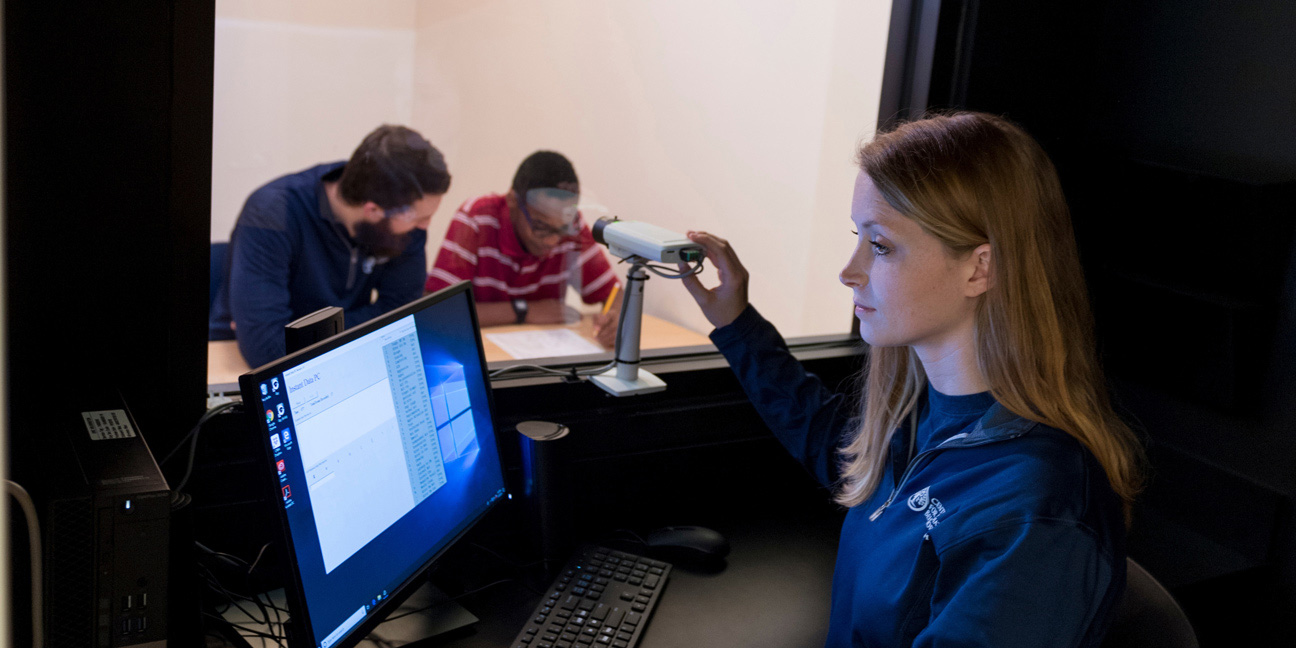Communication Studies, B.A.
Study of communication in all its forms: conversation, mediation, writing, digital media and more.
Studio Art, B.A.
The studio art major offers a multidisciplinary view of current art practice. The department emphasizes exposure to a range of media in small classes with individual attention.
Film Studies, B.A.
Through courses that offer a foundation for understanding cinema − and its relation to culture, history, technology, and aesthetics − film studies teaches you to create and analyze moving images, to produce research and to make art.









